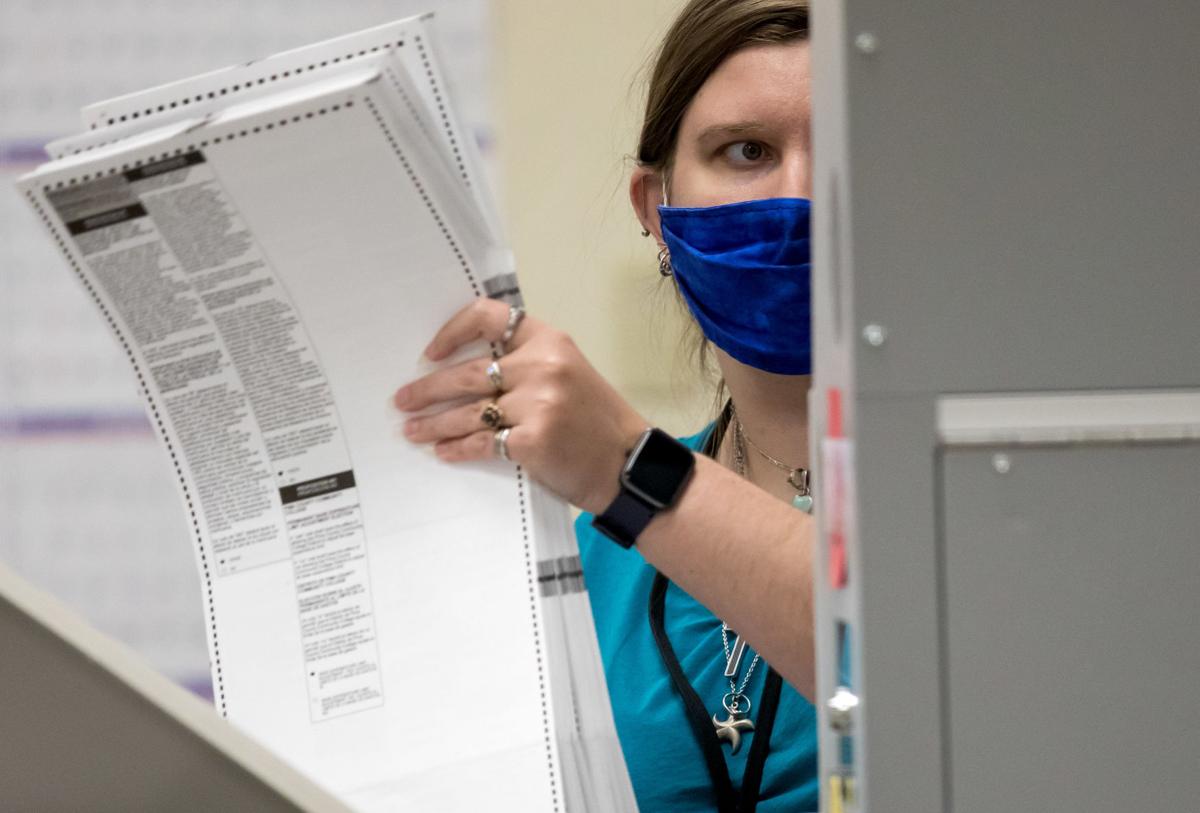PHOENIX — Facing defeats in court, Republican lawmakers are moving to change the law — retroactively — in a bid to eventually get their hands on voting equipment and ballots, even if it takes months.
SB 1408 would spell out in statute that county election equipment, systems, records and other information “may not be deemed privileged information, confidential information or other information protected from disclosure.”
The measure approved Thursday on a party-line 5-3 vote by the Senate Judiciary Committee declares that this information is “subject to subpoena and must be produced.” And it empowers judges to compel production of the materials and records.
Sen. Warren Petersen, R-Gilbert, who chairs the panel, made it clear the legislation has one purpose: to force the hand of Maricopa County officials who have so far refused to comply with a subpoena the Senate has issued.
They have produced various records.
But the supervisors contend the county is precluded from surrendering access to voting machines and the actual ballots to senators or the auditors they hope to hire. And so far the Senate’s efforts to get a court ruling compelling disclosure have faltered.
“They continue to hold the position that we don’t have the authority to investigate,” Petersen said. He said the authority already is there but this makes it “crystal clear.”
That point, however, remains under debate.
The first subpoenas — there were two at the time — were issued in December. The county filed suit contending the machines and ballots were not subject to disclosure.
Maricopa County Superior Court Judge Randall Warner never reached that issue. Instead he concluded there is nothing in the Arizona Constitution that specifically allows him to enforce a legislative subpoena.
A new subpoena and cases before two other judges have failed to get a clear ruling, with one judge suggesting that it would first take a contempt citation by the Senate before he could act. But that bid fell apart earlier this week when Sen. Paul Boyer, R-Glendale, refused to go along with GOP colleagues, leaving the effort one vote short.
Petersen said Thursday his new bill should resolve the matter once and for all.
“This can resolve our pending litigation,” he said. “This can give the county comfort in handing over what we already believe they can do.”
No one from the county was at the hearing to testify on the measure.
Petersen also said he was not deterred by the prior court rulings against the Senate.
“Just because a judge rules something doesn’t mean a judge is right,” he said.
“That’s a big problem here,” responded Sen. Martin Quezada, D-Glendale.
“There’s a small segment of our population and a large segment of elected officials across the nation who are refusing to accept the results of these judicial challenges,” he said. “That’s the furtherance of ‘the big lie’ that there was some sort of election fraud.”
He said there were more than five dozen election challenges filed across the country, virtually all of these ruling against Donald Trump and his supporters. The kind of efforts like what the Senate is trying to do with its audit of the election, Quezada said, simply adds to narrative that people should not trust the election system.
The outcome of those lawsuits did not impress Sen. Sonny Borrelli, R-Lake Havasu City.
“Judges don’t want to get involved in political issues,” he said, which is why cases get dismissed on “technicalities” like whether the person has a right to sue in the first place. “This clarifying language so there’s no other interpretation I think is warranted.”
Petersen called the legislation an “insurance policy” designed to blunt any future arguments by supervisors that they don’t have to surrender what the Senate wants.
Even if the measure becomes law — and even if county officials agree that it requires them to surrender the equipment and ballots — that does not portend a quick end to either the legal fight or the questions about whether the results of the November vote were accurate.
It takes a two-thirds vote of both the House and Senate to adopt any law with an emergency clause, allowing it to take effect immediately on the governor’s signature.





